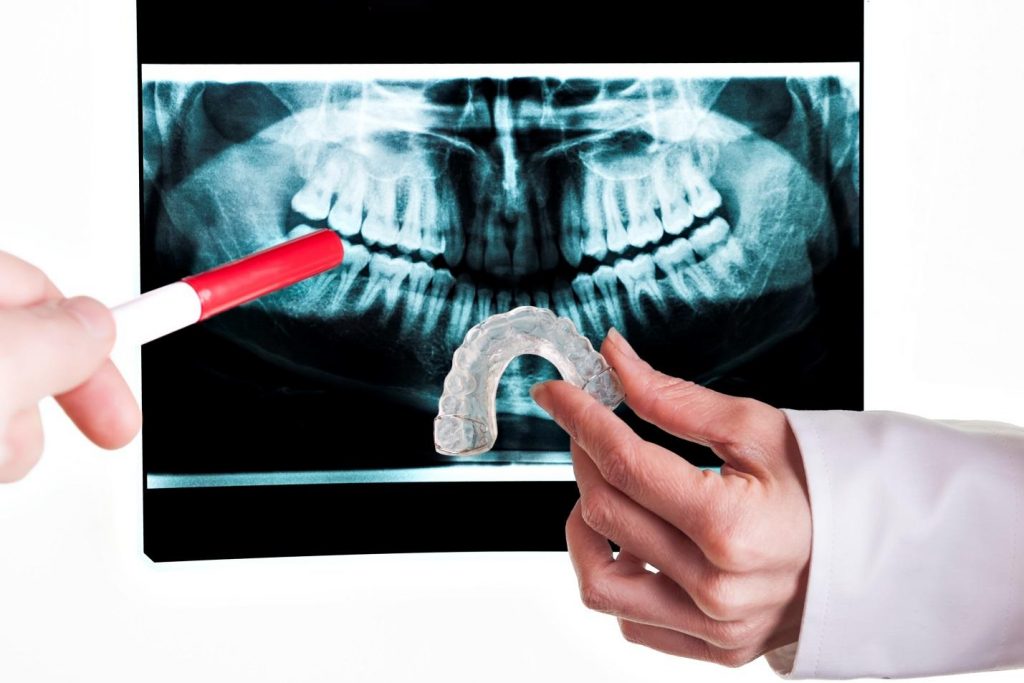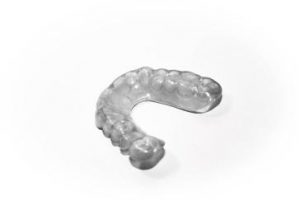 It is not uncommon for people to grind or clench their teeth occasionally. This will not usually harm the teeth. However, when a person does this on a regular basis it can damage their teeth and cause them other problems. Teeth grinding is referred to as bruxism. Teeth grinding can be caused by stress and anxiety. However, it often occurs during sleep and is more likely caused by an abnormal bite or missing or crooked teeth. It can also be caused by a sleep disorder such as sleep apnea.
It is not uncommon for people to grind or clench their teeth occasionally. This will not usually harm the teeth. However, when a person does this on a regular basis it can damage their teeth and cause them other problems. Teeth grinding is referred to as bruxism. Teeth grinding can be caused by stress and anxiety. However, it often occurs during sleep and is more likely caused by an abnormal bite or missing or crooked teeth. It can also be caused by a sleep disorder such as sleep apnea.
How do I know if I grind my teeth?
Many people are unaware that they grind their teeth. This is because they grind or clench their teeth at night while they sleep. Some people grind and/or clench their teeth when under stressful situations. Again, they might not even be aware that they are doing it if it has been a habit for a long time. Here are some possible indications of teeth grinding:
- Sore jaw. Your jaw muscles tighten when you grind or clench your teeth. If you do this repeatedly when you sleep, you may wake up with a sore jaw
- Headaches. The pain from your jaw created by the clenching then travels to other places in the skull, causing headaches or, in severe cases, migraines.
- Complaints from your Partner. Your partner hears you grind. Some grinding can be loud enough to wake your partner.
- Tooth sensitivity or pain. Bruxism can be a cause of aching teeth. However, aching teeth can have different causes such as tooth decay. So contact your dentist as soon as possible if you are experiencing sensitive or aching teeth.
Teeth Grinding can be harmful to your oral health.
Chronic teeth grinding can result in fracturing, loosening, or loss of teeth. When severe damage to teeth is caused from bruxism, bridges, crowns, root canals or implants will likely be required to repair the damaged teeth. Additionally, bruxism can cause damage to fillings and crowns causing you the expense of getting them replaced.
Teeth grinding can have an impact on orthodontic treatment such as braces or Invisalign. In most cases, orthodontics usually helps reduce teeth grinding initially because of the changing bite, shifting teeth and mild soreness that cause our subconscious muscle activity to lessen. As the orthodontics straightens the teeth and corrects a person’s bite it is very likely teeth grinding will lessen in the long term as well and can even be cured after orthodontic treatment is concluded.
Ways to lessen or stop grinding without a mouth guard:
- Reduce or remove caffeinated beverages from your diet
- Do not drink alcohol, as grinding tends to intensify after alcohol consumption
- Do not chew gum, as it will only further aggravate those muscles
- Relax the jaw at night by applying warm, moist heat before bed
- Reduce stress in life (haha)
Mouth Guards & Protective Appliances
 One of the best and simplest solutions to preventing teeth grinding is a mouth guard. Your dentist can fit you with mouth guard to protect your teeth from grinding during sleep. Mouth guards can also be designed so you can wear them during the day, for example: when you are driving.
One of the best and simplest solutions to preventing teeth grinding is a mouth guard. Your dentist can fit you with mouth guard to protect your teeth from grinding during sleep. Mouth guards can also be designed so you can wear them during the day, for example: when you are driving.
For our patients with bruxism, we provide a special bite splint that is built into their final retainer.
In conclusion, don’t ignore possible signs of bruxism. If you suspect you may be suffering from bruxism call us. Make an appointment for a consultation. We can examine your teeth, look for signs of bruxism, check for any other problems such as crooked teeth or an incorrect bite and look for other problems causing bruxism. This can save you a lot of heartache and cost from getting damaged teeth from teeth grinding.
Sincerely,
Dr. David McDonough
